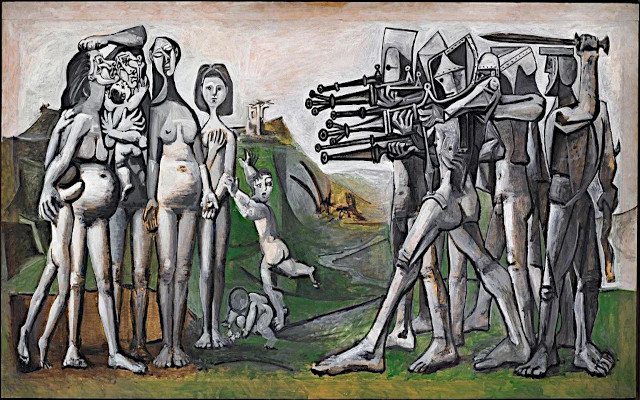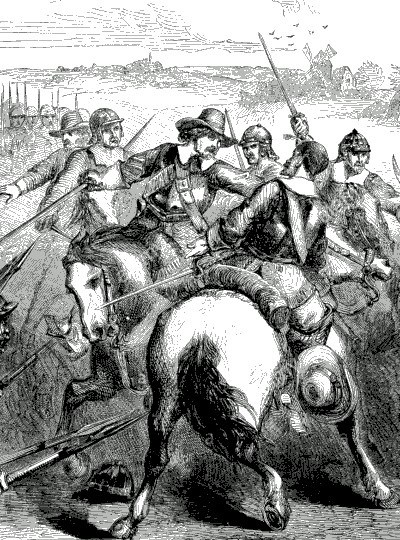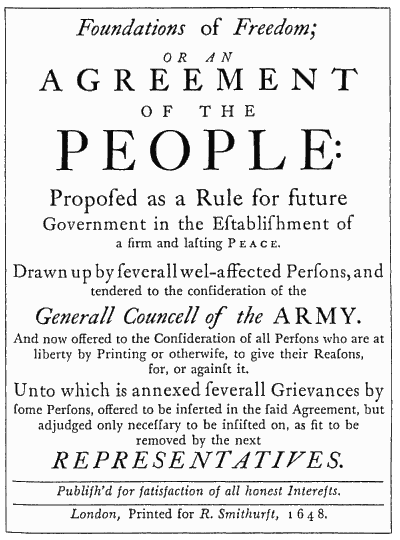

 © 2021/2 Paul Mobbs; released under the Creative Commons license.
© 2021/2 Paul Mobbs; released under the Creative Commons license.
Created: Tuesday 27th April 2021;
updated: 8th May 2022
Length: ~2,600 words
Click for hotkeys list (hotkey ‘K’)
Download podcast as an MP3 or an Ogg Vorbis file.
Click for keyboard instructions (or press hotkey ‘X’)
Sometimes, to truly understand how you got to where you are, you need to understand where the journey started from. Today’s political problems in Britain have their routes almost four hundred years ago, in the forces that created Civil War across the British Isles. The oppositional model of government created over those five decades, which deliberately preserves the power of a small elite through state institutions, still plagues what people curiously call ‘Britain’s democracy’ today.
This ancient pamphlet has been uploaded here for three reasons:
Firstly, it’s a local story from North Oxfordshire that too many in the innately conservative local history groups ignore. It challenges many aspects of today’s society which these events marked the founding of.
Secondly, other on-line copies do not provide enough background information to interpret this text in the modern-day; and so the insights we might gain from studying this period in our history are often overlooked.
Thirdly, if you really listen to the words, and translate them into our present time, don’t you think this describes some of our present predicament today?
From events sparked by The Levellers1, such as the Putney Debates2; to the vision of a simple, truly democratic society envisioned by the ‘True Levellers’3; Seventeenth Century England marked the birth of truly modern ideas for representative democracy.
And we blew it, for the very simple reason that many people did not believe that change was possible, and so did not act.
Though these ideas took root in the revolutions in America or France, in Britain the landed aristocracy made sure that these ideas were violently suppressed for the next four centuries. A process that continues to this day4, where the political descendants of that aristocratic elite still own the vast majority5 of the nation’s land and wealth. Though we may have many aspects of what The Levellers called for, those aspects of The Levellers ‘Agreement’ that limit the economic and political power of parties and patronage are woefully absent.
Both the media and our education system paint an extremely simplistic view of England’s Civil Wars, failing to make the connections to how the debates then are still being fought-over today. And until we make that connection, of how the suppression of English political dissent in the past continues until this very day, we will never make progress.
Perhaps to redress this failure, here is a three-hundred and seventy-two years old pamphlet whose message is as relevant today as when it was written.
This version has been edited to remove the esoteric Seventeenth Century spelling and grammar to make it more easily readable to a modern audience. For more information see Brailsford’s, The Levellers and the English Revolution (Spokesman Press, 1983, page 513-519).
A Declaration from William Thompson and the oppressed people of this nation, now under his conduct in Oxfordshire, dated at their rendezvous6, May 6th 1649.

Whereas it is notorious to the whole world, that neither the faith of the Parliament, nor yet the faith of the army (formerly made to the people of this nation, in behalf of their common right, freedom and safety) hath been observed, or made good. But both absolutely declined and broken, and the people only served with bare words and faire promising papers, and left utterly destitute of all help or delivery. And that this hath principally been by the prevalence and treachery of some prominent persons (now domineering over the people) is most evident.
The Solemn Engagement of the Army7 at Newmarket and Triploe Heaths by them destroyed, the Counsel of Agitators dissolved, the blood of war shed in time of peace. Petitioners for Common Freedom8 suppressed by force of arms, and petitioners abused and terrified. The lawful trial by twelve sworn men of the neighbourhood subverted and denied. Bloody and tyrannical courts (called a High Court of Justice, and the Counsel of State) erected, the power of the sword advanced and set in the seat of the magistrates, the civil laws stopped and subverted. And the military introduced, even to the hostile seizure, imprisonment, trial, sentence and execution of death, upon many of the free people of this nation. Leaving no visible authority, devolving all into a factious junta and Counsel of State9, usurping and assuming the name, stamp and authority of Parliament. To oppress, torment and vex the people, whereby all the lives, liberties, and estates, are all subdued to the wills of those men. No law, no justice, no right or freedom. No ease of grievances. No removal of unjust barbarous taxes. No regard to the cries and groans of the poor to be had while utter beggary and famine (like a mighty torrent) hath broke in upon us, and already seized upon several parts of the nation.

Wherefore through an unavoidable necessity10, no other means left under heaven, we are enforced to betake our selves to the Law of Nature. To defend and preserve ourselves and native rights, and therefore are resolved as one man (even to the hazard and expense of our lives and fortunes) to to endeavour the redemption of the Magistracy of England, from under the force of the sword. To vindicate the Petition of Right11, to set the unjustly imprisoned free, to relieve the poor, and settle this Commonwealth upon the grounds of common right, freedom, and safety.
Be it therefore known to all the free people of England, and to the whole world, that, (choosing rather to die for Freedom than to live as slaves) we are gathered and associated together upon the bare account of Englishmen. With our swords in our hands, to redeem ourselves and the land of our nativity, from slavery and oppression, to avenge the blood of war shed in the time of peace. To have justice for the blood of Richard Arnold13 shot to death at Ware, and for the blood of Robert Lockyer14, and many others who of late martial law murdered in London.
And upon this our engagement in behalf of the Commonwealth, we do solemnly agree and protest, that we will faithfully (laying all self respects aside) endeavour the actual relief and settlement of this distressed nation.
And that all the world may know particularly what we intend, and wherein we will particularly centre and acquiesce for ever, not to recede or exceed the least punctilio. We declare from the integrity of our hearts that by the help and might of God we will endeavour the absolute settlement of this distracted nation, upon that form and method by way of An Agreement of the People15. Tendered as a peace-offering by Lieutenant Colonel John Lilburn16, William Walwyn17, Thomas Prince18, and Richard Overton19, bearing date May 1st 1649. The which we have annexed to this our declaration as the standard of our engagement. Thereby owning every part and particular of the premisses of the said Agreement, promising and resolving, to the utmost hazard of our lives and abilities, to pursue the speedy and full accomplishment thereof.
To interpret Thompson’s pamphlet, it’s necessary to understand what The Levellers were asking for in, ‘An Agreement of the People’; which had arisen over a two-year period since the Putney Debates2.
Below is a very bare summary of the thirty points in the ‘Agreement’. As you can see, the ‘Agreement’ is a very recognisably ‘modern’ political model – which is undoubtedly why the aristocratic leaders of the Parliamentary forces rejected the Army’s call for these reforms.
What’s interesting to reflect upon reading the list of demands from The Agreement, is how many of those have been won over the years since. But more importantly, from jury trials to the corruption of Parliamentary politics, how many of those hard-won freedoms are now under threat from political vested interests today.
And to our power, to protect and defend all such as shall assent or adhere thereunto. And particularly, for the preservation and deliverance of Lieutenant Colonel John Lilburn, William Walwyn, Thomas Prince, Richard Overton, Captain Bray, and William Sawyer, from their barbarous and illegal imprisonments. And we declare, that if a hair of their heads perish in the hands of those tyrants who restrain them, that if God shall enable us, we will avenge it seventy times seven fold upon the heads of the tyrants themselves and their creatures.
And that till such time as by Gods assistance we have procured to this nation the declared purpose of this our engagement, we will not divide nor disband. Nor suffer our selves to be divided nor disbanded. Resolving with soberness and civility to behave ourselves to the country, to wrong nor abuse any man, to protect all to our power from violence and oppression in all places where we come. Resolving to stop the payment of all taxes or assessments whatsoever, as of excise, tithes, and the tax of ninety thousand pounds per mensem, etc.
And having once obtained a new representative, according to the said Agreement, upon such terms and limitations therein expressed, we shall then freely lay down our arms. And return to our several habitations and callings.
And concerning the equity, necessity and justice of our undertaking, we appeal to the judgement of the oppressed, betwixt their destroyers and us. Whether by the law of God, of nature, and nations, it be not equally justifiable in us to engage for the safety and deliverance of this nation. As it was with the Netherlanders, and other people for theirs. And that upon the same principles that the army engaged at Newmarket and Triploe Heaths, both Parliament and army declaring, that it is no resistance of Magistracy to side with just principles, and law of nature and nations. And that the soldiery may lawfully hold the hands of that General, who will turn his Cannon against his Army, on purpose to destroy them. The sea-men, the hands of that pilot who wilfully runs his ship upon a rock.
And therefore (the condition of the Common-wealth considered) we cannot see how it can be otherwise esteemed in us. And upon that account we declare, that we do own, and are resolved to own all such persons, either of the army or countries, that have already, or shall hereafter, rise up and stand for the liberties of England, according to the said Agreement of the People. And in particular; we do own and avow the late proceedings in Colonel Scroop’s, Colonel Harrison’s, and Major General Skippon’s Regiments, declared in their resolutions published in print, as one man. Resolving to live and die with them, in their and our just and mutual defence.
And we do implore and invite all such as have any sense of the bonds and miseries upon the people. Any bowels of compassion in them. Any piety, justice, honour, or courage in their breasts. Any affections to the freedoms of England. Any love to his neighbour or native country. To rise up, and come in to help a distressed miserable nation, to break the bands of cruelty, tyranny, and oppression, and set the people free.
In which service, trusting to the undoubted goodness of a just and righteous cause, we shall faithfully discharge the utmost of our Endeavours. Not sparing the venture of all hardships and hazards whatsoever, and leave the success to God.
Signed by me, William Thompson, at our rendezvous in Oxfordshire, near Banbury, in behalf of my self and the rest engaged with me, May 6th 1649.
For a new Parliament, by the Agreement of the People.
End of the page. jump to the top of the page